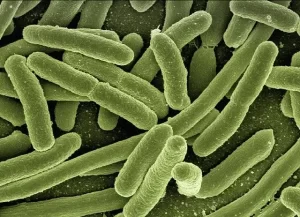Can patients find early gastric cancer themselves for early treatment?
- Did Cloud Seeding Unleash a Deluge in Dubai?
- Scientists Identify Gut Bacteria and Metabolites that Lower Diabetes Risk
- OpenAI’s Model Matches Doctors in Assessing Eye Conditions
- UK: A Smoke-Free Generation by Banning Sales to Those Born After 2009
- Deadly Mutation: A New Monkeypox Variant Emerges in the DRC
- EPA Announces First-Ever Regulation for “Forever Chemicals” in Drinking Water
Can patients find early gastric cancer themselves for early treatment?
Can patients find early gastric cancer themselves for early treatment? 5 things need to pay attention.
Early gastric cancer does not have specific clinical symptoms, and the most common symptom is upper abdominal discomfort.
Let me start with the conclusion: it is not easy, especially for ordinary people, it is almost impossible to find early gastric cancer based on symptoms.
Why? Because patients with early gastric cancer generally have no obvious positive signs, about 70% of patients with early gastric cancer consciously “everything is normal”, or only have some symptoms similar to general gastric disease. These minor manifestations are easy to be ignored, and lose their vigilance as minor problems, and the result is a misfortune.
By the time the typical symptoms appear, they are often already in the advanced stage or even the advanced stage.
However, if you look at these “small problems” from a doctor’s professional point of view, you may be able to find some clues.

One medical research team analyzed the symptoms of 400 cases of early gastric cancer and found that the symptoms of early gastric cancer patients are generally atypical.
Common symptoms are:
- Upper abdominal pain 83.3%;
- Upper abdominal discomfort 36%;
- Stomach fullness 37.8%;
- Loss of appetite 39.5%;
- Acid reflux acr 37.5%;
- Weight loss a 33.8%.
1. Dummy pain in upper abdomen
Early gastric cancer does not have specific clinical symptoms. The most common symptoms are upper abdominal discomfort, such as mild stomach pain, swelling and heaviness, and sometimes dull pain in the heart socket. At first, it is often diagnosed as gastritis or ulcer disease and treated. Symptoms may be temporarily relieved.
Patients with severe symptoms may have swelling pain, edema, dull pain, sharp pain, etc., which cannot be relieved after eating, and these symptoms will increase.
Some patients are also accompanied by symptoms such as loss of appetite, nausea and vomiting, fullness, and dysphagia, and these symptoms tend to get worse.
If the lesion occurs in the antrum of the stomach, it will cause duodenal dysfunction and rhythmic upper abdominal pain, similar to symptoms of ulcer disease. According to the medication and treatment of ulcer disease, the symptoms will disappear at first. If the gastroscopy is not performed, it is often considered to be cured, delaying diagnosis and treatment.
The pain of early gastric cancer is different from the rhythmic pain of gastric ulcer and duodenal ulcer.
2. Upper abdominal discomfort, indigestion, loss of appetite
Upper abdominal discomfort is the most common initial symptom in gastric cancer. About 80% of patients have this manifestation, which is similar to dyspepsia.
Dyspepsia manifests as abdominal distension, easy fullness, acid reflux, belching, nausea, vomiting, and nausea. It usually occurs after meals, and is generally mild, irregular, and often does not attract my attention and attention.
Loss of appetite may be an early symptom of gastric cancer, and it is not accompanied by symptoms of stomach pain. If it occurs at the same time as the symptoms of stomach pain and hepatitis can be ruled out, it should be paid attention to.
The early symptoms of gastric cancer may also be a feeling of fullness after eating and accompanied by mild nausea.
Cardiac tumors may begin to experience eating disorder, difficulty swallowing, and food reflux. The further development of gastric antrum cancer may cause vomiting due to pyloric obstruction.
3. Loss of appetite, progressive weight loss
Early gastric cancer is often a sudden manifestation of loss of appetite and greasiness.
This is relatively different from the loss of appetite caused by hepatitis, so that patients have to reduce their food intake. Even if they increase various condiments, they only temporarily improve their appetite. No, it will become ineffective for a long time. Gradually lose weight and gradually develop into anorexia;
Especially aversion to meat foods, if you do not go to a doctor, you may have obvious symptoms such as weight loss, fatigue, and anemia.
Therefore, anyone who has symptoms of upper abdominal discomfort accompanied by high-risk factors, or repeats after treatment, must be vigilant and get gastroscopy in time for early detection and early treatment.
4. Upper gastrointestinal bleeding
A small part of early gastric cancer can be manifested as mild upper gastrointestinal bleeding symptoms, that is, black stool or persistent stool occult blood positive. It is more common in polypoid and ulcer-like early gastric cancer. It is caused by erosion on the surface of the lesion or cancer invading capillaries, causing a small amount of long-term bleeding. Early gastric cancer can also be found in various subtypes of early gastric cancer with relatively flat lesions. Its characteristic is that it is not easy to be controlled by drug therapy.
The elderly who have no gastric disease should be more alert to the possibility of gastric cancer once they appear black.
If the stool is tarry, the fecal occult blood test continues to be positive, especially those who are not easy to disappear after general diet control or taking gastric drugs, it is a very important early warning symptom of gastric cancer.
Therefore, all those who have gastrointestinal bleeding, such as hematemesis, melena, and fecal occult blood, must go to a qualified hospital for gastroscopy in time to determine the cause of the bleeding and understand the possibility of gastric cancer.
The above symptoms can easily be misdiagnosed as functional dyspepsia, so you should seek medical treatment as soon as possible and undergo gastroscopy and other examinations in order to detect gastric cancer at an early stage
5. Other manifestations of early gastric cancer
Unexplained weight loss, fatigue, and lack of energy are also a common group of gastric cancer signals that lack specificity, and they are progressively worsening. Some are secondary to dyspeptic symptoms. Patients automatically restrict their daily diet due to abdominal distension and belching after eating, resulting in weight loss, weight loss, fatigue, and anemia.
Nausea and vomiting can also lose nutrients, leading to malnutrition and aggravating symptoms of weight loss and fatigue.
In the middle and late stages of gastric cancer, weight loss, fatigue, and anemia are even more obvious due to tumors looting nutrition, coupled with tumor ulceration and bleeding.
It is particularly worth mentioning that in pathology, most gastric cancers occur on the basis of chronic gastritis (especially atrophic gastritis), Helicobacter pylori (HP) infection, remnant gastritis, gastric polyps, gastric ulcers, etc.
If the patient has a long-term history of chronic gastric disease, the symptoms have been repeated and worsened recently, the attack is more frequent, and the medication cannot be relieved, it is necessary to be alert to the occurrence of early gastric cancer.
The best way detecting early gastric cancer is gastroscopy. Because the symptoms of gastric cancer are too unobvious, everyone over the age of 40 should have a bowel endoscopy regardless of whether they have symptoms. If they have symptoms, they should be checked immediately.
The treatment effect of early gastric cancer is very good, and the goal of cure can be achieved. Therefore, early detection, early diagnosis, and early treatment are particularly important.
(source:internet, reference only)
Disclaimer of medicaltrend.org
Important Note: The information provided is for informational purposes only and should not be considered as medical advice.



